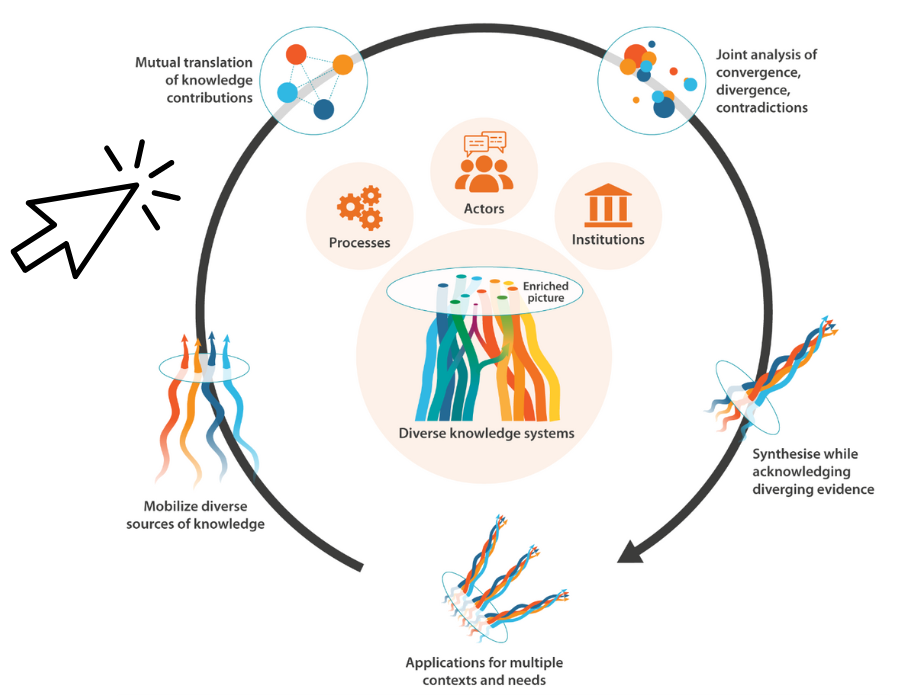 Story highlights
Story highlights
- Follow the panel on ILK during IPBES Stakeholder day ⎮ Aug 27
- Click your way through the MEB online
The Multiple Evidence Base (MEB) approach has evolved in collaboration between Indigenous Peoples and local communities’ organizations deeply engaged in protecting and maintaining their Indigenous and local knowledge, and researchers and practitioners. The aim of the MEB approach is to guide inclusive processes for collaborations across knowledge systems, based on equity and usefulness for all actors involved. It emphasizes that indigenous, local and scientific knowledge systems are complementary, equally valid and useful for exploring sustainable solutions for biodiversity governance.
The new MEB webpage was designed in response to the demand from those who have been inspired by the MEB approach and want to learn how to implement it. The MEB is visualised in five steps, and exemplifies it through partners’ piloting experiences and reports. You will also find examples from like-minded methods which cross-fertilize and inspire one another.
Click on the image below to explore the MEB

The development of a MEB approach emerged from a dialogue in the Indigenous community Usdub, in Guna Yala, Panama. The Guna Yala dialogue was held in 2012 and was hosted by FPCI and co-organized by ABN, IIFB, FPP, SwedBio and CBM. It took place at a pivotal moment a week before the establishment of the Intergovernmental Science-Policy Platform on Biodiversity and Ecosystem Services (IPBES) in Panama City 2012, where respect and recognition of Indigenous and local knowledge was set as one of the guiding principles. This created a window of opportunity for critical reflections, and contribution of new thinking to the work of IPBES. The dialogue identified essential principles for exchange across knowledge systems: trust, respect, reciprocity, equity, transparency and free prior and informed consent for sharing. Since then, a network of holders of Indigenous and local knowledge and other experts formed a community of practice around the MEB approach.
Why now?
- The tenth Plenary of IPBES takes place in Bonn 27 August – 2 September 2023, to focus on current trends and impacts on biodiversity, management options and recommendations for policymakers. The Plenary will in one of its agenda items reflect the experiences of working with Indigenous and local knowledge in IPBES, based on a review of ILK in IPBES made by the Task Force on Indigenous and Local knowledge of the work so far. The review covers the ways in which ILK has been included in IPBES products, as well as in national and regional assessments that are based on IPBES methodologies, and ways of enhancing methodologies for working with ILK and enhancing the participation of Indigenous Peoples and local communities (IPLCs) in IPBES.
- IPBES 10 will be preceded by a Stakeholder Day on 27 August. This annual event brings together scientists, members of Indigenous Peoples and local communities, and representatives of civil society organizations to exchange views regarding the issues on the meeting’s agenda. On the agenda for this year is a panel on ILK in IPBES, coordinated by SwedBio partners in COD-ILK.
Get started:

 Pernilla Malmer
Pernilla Malmer Lou Darriet
Lou Darriet Celina Thaller de Zárate
Celina Thaller de Zárate